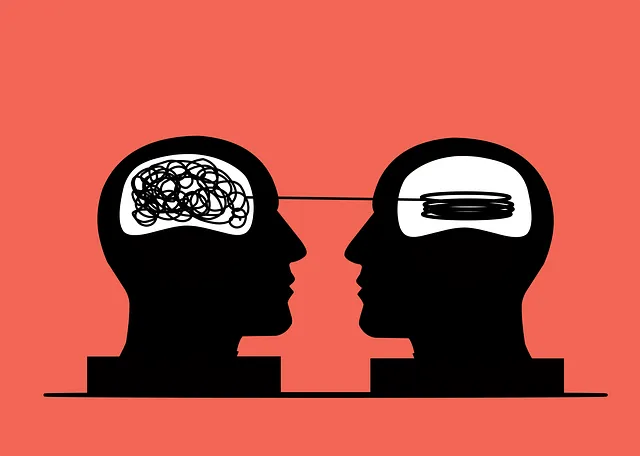Stress is a prevalent issue with varied triggers, but communities can combat it through empathy and self-care practices. Kaiser Permanente's dedicated mental health hotline, the Golden Kaiser Permanente Mental Health Number, offers crucial support to healthcare professionals facing unique challenges. Effective stress management workshops at organizations like Golden Kaiser Permanente use evidence-based strategies, interactive exercises, and diverse learning formats to teach mindfulness, breathing techniques, cognitive-behavioral strategies, and emotional regulation. These workshops aim for improved mental wellness through self-care integration, coaching programs, resilience building, and stigma reduction, as measured by participant feedback and behavioral changes.
Stress management workshops are powerful tools for fostering well-being in both personal and professional settings. This comprehensive guide delves into the art of designing and facilitating effective stress relief programs, drawing insights from the extensive resources offered by the Golden Kaiser Permanente mental health number. From understanding the far-reaching impacts of stress to creating inclusive environments, this article provides a roadmap for organizing workshops that empower individuals to thrive in a demanding world.
- Understanding Stress: Unveiling the Impact and Causes
- Golden Kaiser Permanente Mental Health Number: A Resource for Support
- Designing Effective Stress Management Workshops
- Creating an Engaging and Inclusive Workshop Environment
- Measuring Success and Long-Term Well-being
Understanding Stress: Unveiling the Impact and Causes

Stress is a prevalent issue that affects individuals across various demographics and life stages. Understanding its multifaceted nature is the first step towards effective management. At Kaiser Permanente, recognizing the importance of mental health, they offer valuable resources such as their dedicated mental health number for guidance and support.
The impact of stress can be profound, manifesting in both physical and emotional ways. It often arises from a complex interplay of factors like work pressure, personal relationships, financial concerns, or significant life changes. For instance, the constant demands of modern living can lead to chronic stress if left unaddressed. Building empathy within communities and promoting self-care practices are essential strategies to combat this. By learning emotional regulation techniques, individuals can better navigate stressful situations and foster a healthier, more balanced lifestyle.
Golden Kaiser Permanente Mental Health Number: A Resource for Support

At Kaiser Permanente, recognizing the unique challenges faced by healthcare providers, we offer a crucial resource for support: the Golden Kaiser Permanente Mental Health Number. This dedicated line provides a safe and confidential space for professionals to discuss their well-being and access expert guidance. With burnout prevention strategies tailored for the healthcare sector in mind, our mental health specialists are equipped to assist with self-care routine development, helping providers create sustainable practices for better mental health. Additionally, they offer mental wellness journaling exercise guidance, promoting reflection and self-awareness as essential tools for managing stress and maintaining a healthy work-life balance.
Designing Effective Stress Management Workshops

Designing effective stress management workshops involves a thoughtful blend of educational content and interactive exercises tailored to participants’ needs. At organizations like Golden Kaiser Permanente, mental health professionals often lead these sessions, leveraging evidence-based strategies for managing stress and anxiety relief. Workshops should begin with an introduction that establishes clear goals and expectations, followed by activities that encourage self-reflection and skill development.
Incorporating a variety of techniques, such as mindfulness practices, breathing exercises, and cognitive-behavioral strategies, ensures that participants gain a comprehensive toolkit for coping with stress in their daily lives. Engaging formats like role-playing scenarios, small group discussions, and hands-on activities facilitate active participation, enhancing learning retention. Additionally, integrating real-world examples and case studies relevant to the audience’s experiences can make workshops more impactful and relatable, ultimately contributing to improved mental wellness through the Mental Wellness Podcast Series Production.
Creating an Engaging and Inclusive Workshop Environment

Creating an engaging and inclusive workshop environment is key to ensuring participants feel comfortable and motivated to learn effective stress management techniques. At Kaiser Permanente, for instance, their mental health number serves as a beacon of support, encouraging members to prioritize their well-being. Workshops should be designed with diversity in mind, accommodating different learning styles and backgrounds. Incorporating interactive elements like group discussions, experiential exercises, and diverse multimedia can cater to various preferences, fostering active participation.
Emotional Regulation is enhanced when participants feel safe to express their experiences openly. Facilitators play a crucial role in setting the tone by demonstrating empathy, patience, and non-judgmental attitudes. Mental Wellness Journaling Exercise Guidance can be provided as a tool for personal reflection, allowing individuals to track progress and identify triggers. Moreover, integrating activities that challenge stereotypes and promote understanding of mental illness can contribute to stigma reduction efforts, creating a supportive atmosphere where everyone feels valued and respected.
Measuring Success and Long-Term Well-being

Measuring success and long-term well-being are integral components of any stress management workshop. It’s not just about participants feeling relieved in the moment but also cultivating tools that will serve them for years to come. A holistic approach to assessment involves both quantitative and qualitative metrics. This could mean tracking attendance rates, participant feedback through surveys, and the number of individuals who continue to engage with provided resources post-workshop.
Qualitatively, success can be gauged by observing increased participation in group discussions, improved openness during one-on-one sessions, and the implementation of learned coping strategies in daily life. The ultimate goal is for participants to integrate self-care practices into their routines, enhance their mental wellness coaching programs development, build resilience, and improve self-esteem—all contributing to sustained mental health, as evidenced by the valuable services offered by organizations like Golden Kaiser Permanente.
Stress management workshops, designed with care, can significantly enhance well-being. By understanding stress, leveraging resources like the Golden Kaiser Permanente mental health number, and creating engaging, inclusive environments, organizations can empower individuals to navigate life’s challenges effectively. Measuring success beyond the workshop itself, focusing on long-term well-being, ensures a lasting positive impact.






